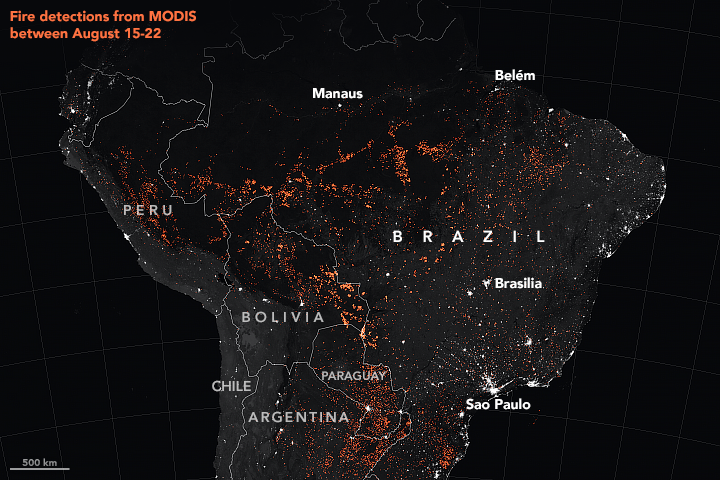If you have been paying attention to the news lately, you have probably seen at least one segment covering the fires in the Amazon rainforest. On social media, pictures of charred forests and burning trees are popping up everywhere, but there seems to be more of a controversy over which celebrity posted old pictures of such a disaster than actual coverage of the event itself.
Among its many characteristics, the Amazon rainforest is a biodiversity haven, it is one of the leading factors in lessening the effects of climate change and is at the center of a political and economic debate. The Amazon is burning due to the irresponsible actions of man and we as Christians who are called to steward of the land should be concerned.
The Amazon rainforest contains one-tenth of the known species on Earth, according to a World Wildlife Fund report. This hotspot of biodiversity has contributed a great deal to the field of medicine as newly discovered plant life has been linked to cures for some of the world’s most pressing disease concerns.
Even more, the constant cycling of carbon dioxide and oxygen from the plant life helps to mitigate the environmental damage done by economic and industry growth in the Amazon region. All this life hangs in a delicate environmental balance, which is currently being destroyed by the fires.
Brazil is home to nearly 60% of the Amazon rainforest, and much of the international attention over the fires has been directed to the Brazilian government and its response to this crisis through environmental policies. Vox Media’s The Verge reports that on Aug. 26, French President Emmanuel Macron offered a sum of $22.2 million in international support, which Brazilian President Jair Bolsonaro initially refused.
However, “fighting thousands of fires in remote areas is an extremely challenging task that is likely to require thousands of people and many aircraft,” said Steven Mufson, a reporter with the Washington Post. “A commitment of $22.2 million is largely a symbolic down payment and an expression of global concern. It will take far more money to put these fires out and, more importantly, prevent new ones from flaring up as farmers and ranchers seek to burn felled trees during the rest of the dry season.”
Bolsonaro’s environmental policies are much more lax than that of his predecessor, and the freedom to fell trees, burn land and strip the rainforest habitat in the name of increasing agribusiness has set the stage for this catastrophe.
The habits of overgrazing and over-farming the land used for both cattle production and soybean crops have created an environment in which a fires can more easily break out, even in the middle of a non-drought year. Although these businesses comprise nearly a quarter of Brazil’s economic system, sustainable agricultural practices like pasture and crop rotation must be implemented to ensure that the Amazon can maintain its role, both in Brazil’s economy and the global climate.
Here in the U.S. it is tempting to dismiss the Amazon fires as just another environmental issue that can’t be helped. In reality, the same practices that caused the American Dust Bowl in the 1930s are to blame for these fires.
We have a Biblical mandate to care for the environment around us, using it respectfully and responsibly. It is in our best interest to be aware of the causes that precipitate such widespread destruction. In this way, we can take care to reduce the impact of our own agricultural practices so that similar tragedies do not become commonplace.








